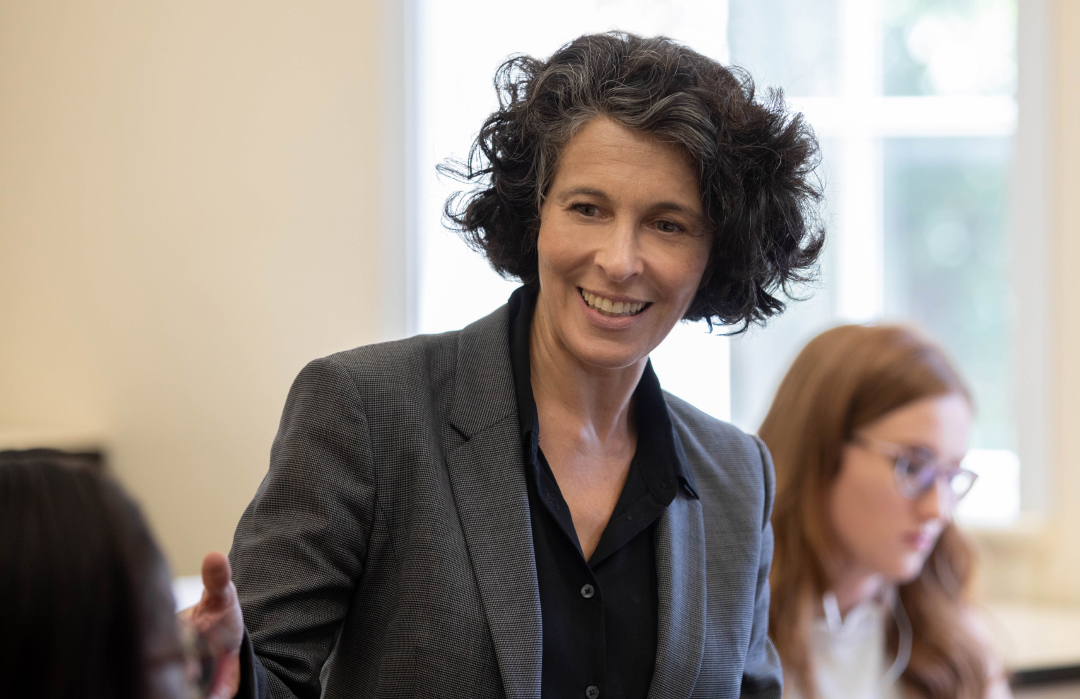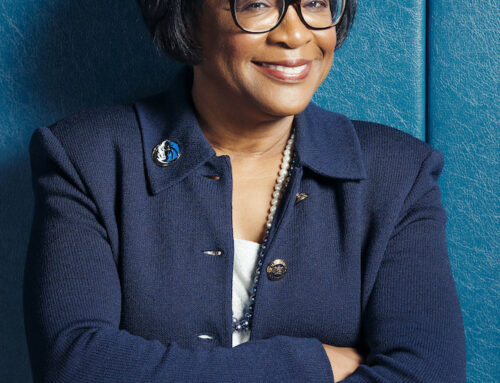Pamela Metzger’s interest in social justice started with her undergraduate degree from Dartmouth, where she studied feminist theory and created a guide with chapters that are still used to teach the theory. Afterward, she got her J.D. from New York University School of Law and later served in New York as a federal defender and a visiting law professor at Washington and Lee University. It was there that Metzger directed the Alderson Legal Clinic for Women in Prison.
“When I first started out as a young lawyer, there would be days when I would be the only woman in court as a lawyer… People would assume I was the clerk or secretary and nevermind mansplaining, you just couldn’t get a word in,” she says.
However, that has changed drastically.
“One thing women have brought into the profession coming in as a minority of the participants has been to say, ‘Hey, we need to pay more attention to other things besides just trials and who can power down the podium the loudest,’” she says. “We need to think about the social conditions that people are coming from and what their life experiences are like.”
In 2001, Metzger moved to New Orleans, where she taught at Tulane University School of Law for 16 years. During this time, she looked at these social conditions as she directed Tulane’s Criminal Litigation Clinic and made headlines with her work helping defendants left incarcerated without representation after Hurricane Katrina. It was later portrayed in the HBO series Treme.
Metzger brought her experience and passion for justice to SMU in 2017 to run the Deason Family Criminal Justice Reform Center, the brainchild of Preston Hollow neighbor Doug Deason.
Students in the center conduct independent research and advocate to reform the criminal legal system in the delivery of the Sixth Amendment right to counsel, STAR systems (Small, Tribal and Rural criminal systems) and the way prosecutors make their screening and charging decisions.
“I’ve always had a thing about underdogs, so I’ve always been very, very interested in questions about how you make a fight fair,” Metzger says.
In the South, much of the criminal legal system was built to perpetuate slavery and Jim Crow, so it is harder to separate the work of social justice and criminal justice. The Deason Center has made strides in recent years with research on the effects of non-prosecution policies for low-level marijuana offenses. Specifically, the students are determining whether these policies produce a system where Black and non-Black people are equally likely to face a citation or arrest for marijuana possession.
One of these research projects examined how the 2019 non-prosecution policy for low-level marijuana charges affected racial disparity in marijuana referrals: District Attorney Learning and Leadership through Application of Science (DALLAS) initiative, which partners with the Dallas County District Attorney’s Office.
“We’re also digging into a larger project about how we’re going to assist them (the district attorney’s office) in evaluating the process that they go through from when an arrest is made to when the grand jury,” Metzger says.
One from this project — “Fewer, Not Fairer: Changes in Racial Disparity Police Referrals for Marijuana Prosecution in Dallas County 2018-2019” — found that police sent 31% fewer marijuana possession cases to the Dallas County District Attorney’s Office in 2019 than 2018, yet the racial disparity in marijuana referrals was 10% worse.
After this report and others, which established the number of charges being imposed on marijuana offenders of cases the District Attorney’s office won’t prosecute, Dallas Police Chief Eddie Garcia ordered officers to stop charging people caught with small amounts.
“The longer I spent thinking about that, the more it just kind of stuck with me that there’s nothing in the Constitution that says you have to prosecute people,” she says. “But there is something in the Constitution that says if you are going to prosecute them, you have to give them a fair shot.”







